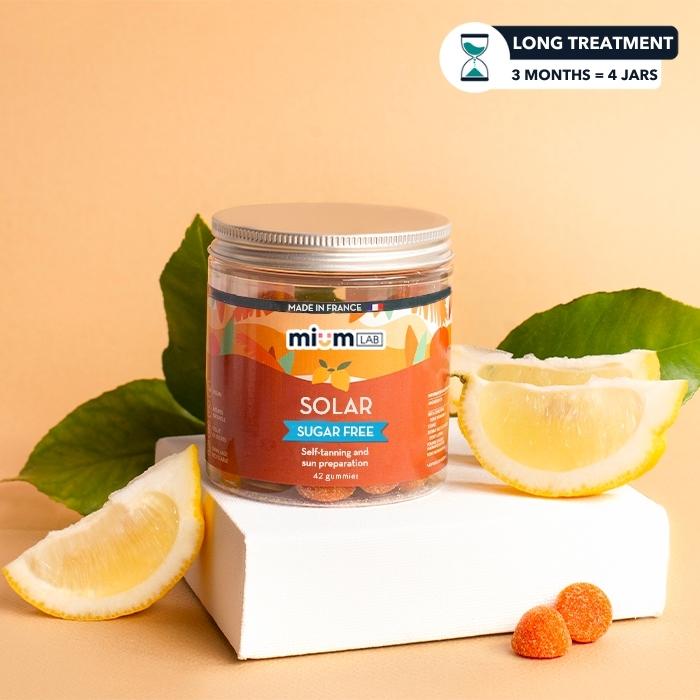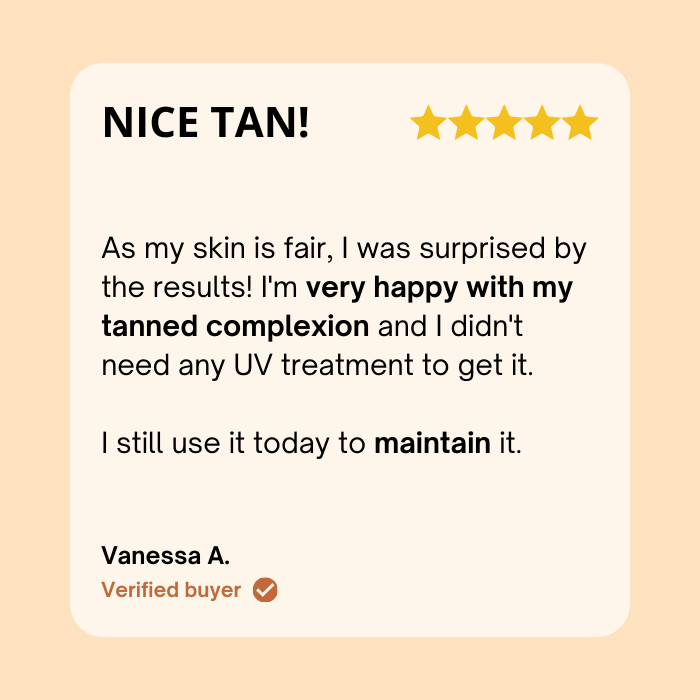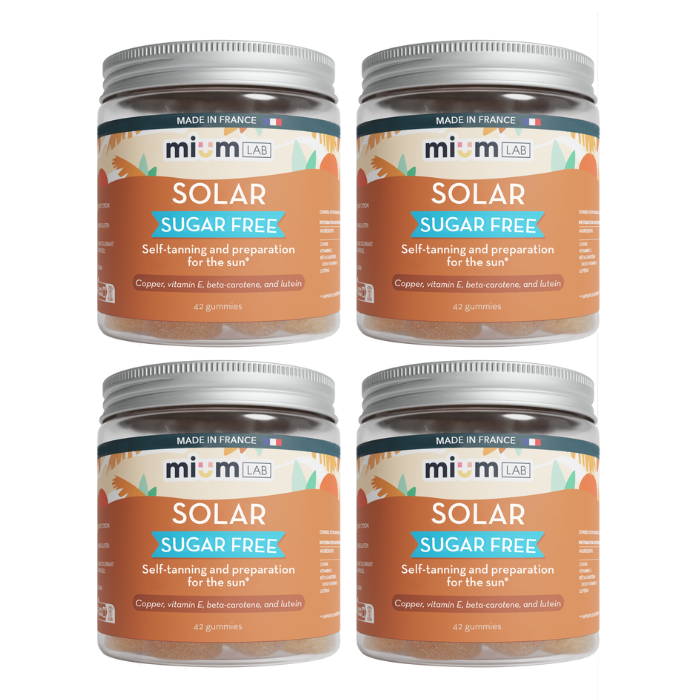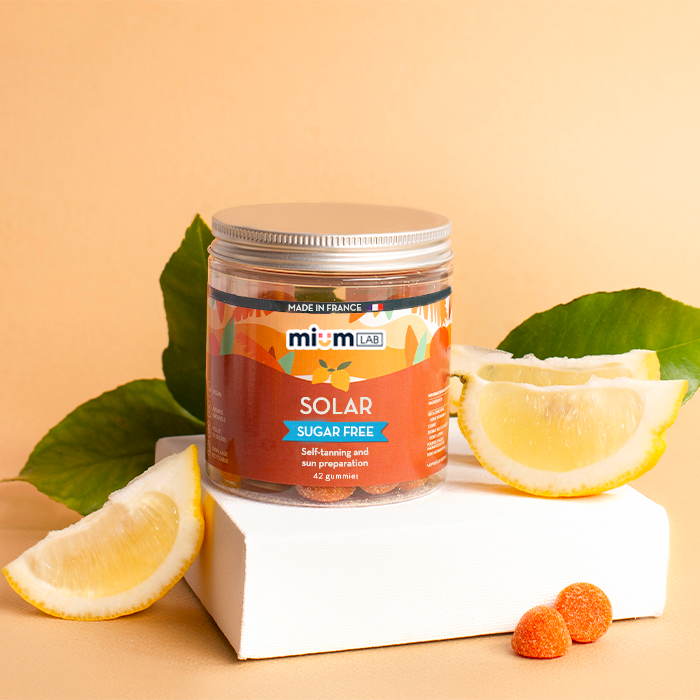The benefits of beta-carotene for skin: a natural beauty ally
Beta-carotene, a precursor of vitamin A in the body, is famous not only for its positive effects on overall health but also for its numerous benefits for the skin. Thanks to its antioxidant properties and its ability to be converted into vitamin A, it plays a crucial role in maintaining healthy and radiant skin.
Antioxidant protection
Combats skin ageing
The antioxidant action of beta-carotene allows it to neutralise free radicals responsible for premature skin ageing. By limiting this oxidative stress, it helps prevent the appearance of wrinkles, fine lines, and other signs of skin ageing.
Strengthens the skin barrier
Beta-carotene promotes the repair and maintenance of the skin barrier, essential for protecting the skin against external aggressions and preventing moisture loss. Well-hydrated skin is synonymous with supple and resilient skin.
Beta-carotene for improving complexion
Promotes a tanned complexion
By stimulating melanin production, beta-carotene can help give the skin a darker and more even tone, enhancing the appearance of a tan. This property is particularly appreciated for its "healthy glow" effect.
Reduces sun sensitivity
Although beta-carotene does not replace sunscreen, it can reduce the skin's sensitivity to the sun, offering additional protection against light UV damage, such as mild sunburns. However, adequate sun protection is always essential when exposed to the sun.
Support in treating skin conditions
Prevention and treatment of acne
Vitamin A, derived from the conversion of beta-carotene, is essential for reducing excessive sebum production, a contributing factor to acne. Moreover, it promotes cell renewal, helping to reduce the appearance of acne scars.
Soothing inflammatory conditions
The anti-inflammatory properties of beta-carotene can help soothe skin prone to conditions such as eczema and psoriasis, reducing redness and irritation.
Beta-carotene supplements to prepare your skin for the sun
With summer and sunny holidays approaching, beta-carotene supplements help prepare the skin before sun exposure to improve its resistance to UV and promote an even tan. It is recommended to start beta-carotene supplements several weeks before sun exposure to allow the skin to adapt and fully benefit from the nutrient.
Natural sources of beta-carotene
To enjoy these benefits, it is advisable to prioritise dietary sources of beta-carotene. Foods rich in beta-carotene include carrots, sweet potatoes, spinach, and red peppers, among others. A varied and colourful diet is the key to healthy skin from within!
Risks of beta-carotene overdose
Unlike beta-carotene obtained from food, high-dose supplements can lead to carotenodermia (yellowing of the skin) and, in rare cases, increase the risk of lung disease in smokers.
Contraindications of beta-carotene
- Risks for smokers: Chronic smokers are advised against taking beta-carotene supplements due to an increased risk of developing certain pathologies, including lung cancer. Studies have shown that smokers who take high doses of beta-carotene supplements over a long period may have an increased risk of developing lung cancer. These findings suggest a complex interaction between tobacco components and the metabolism of beta-carotene in smokers' bodies. Smoking alters the absorption and metabolism of many nutrients, including beta-carotene. The potential pro-oxidant effect of beta-carotene in smokers can be explained by the oxidative environment changes caused by tobacco smoke.
- Pregnant women: Although there is no formal contraindication, pregnant women should consult a healthcare professional before taking beta-carotene-enriched dietary supplements.





